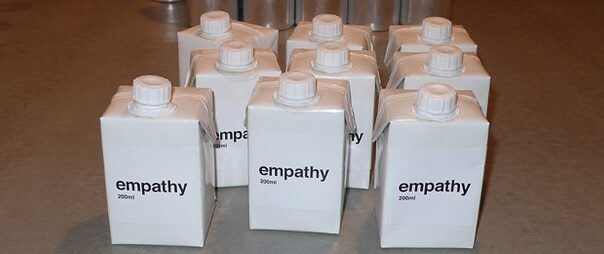Courageous empathy is communicating that incredibly healing message of, “You’re not alone.” ~Brene’ Brown

I try to avoid political topics when blogging about leadership. I’m going to make a slight exception today. There was one response, in particular, during the most recent Democratic Presidential Debate that caught my attention. It appears that I wasn’t the only one who took notice of this answer.
The last question of the debate posed by Anderson Cooper, I think, was intended to be a sort of trick question. One that the candidates very likely had not prepared for and one that could reveal more about their character and personal values than simply asking about personal values.
Cooper described how Ellen DeGeneres recently defended her friendship with George W. Bush and then asked the candidates to speak about a friendship that would surprise us and what impact it’s had on them and their beliefs.
Some responses were vague and overly generalized. Likely because they were either thrown off by the question or simply couldn’t think of a specific example.
An Empathetic Answer
Then there was Andrew Yang’s answer. He shared a detailed story about a specific voter he met while on the campaign trail named Fred. Fred was a trucker and an avid Trump supporter. Yang described how Fred let him ride in his truck for hours. How he learned that Fred had spent time in jail and shared his experiences trying to get other people off drugs. At the close of his story Yang revealed that Fred is now supporting his campaign – it was a presidential debate after all.
Yes, in the end, it was a political answer. However, what stood out to me was that Andrew Yang took the time, and patience, to listen first. He heard about the real life challenges that Fred faced. Yang spent hours listening. He practiced empathy. Using Cory Booker’s mantra, Yang practiced, “courageous empathy.” I call it courageous because Fred was very different from Yang, on many levels. This wasn’t a five-minute conversation while glad-handing in a cafe. He gave Fred the space to hold a view different from his own. It was time spent putting himself in someone else’s shoes.
Truth be told, I don’t think Yang has much of chance to be our next president. However, how he was able to answer that single question, stood out to me as a moment of leadership. Cory Booker defines courageous empathy as believing you are right but still working to understand the thoughts and feelings of those you disagree with.
Leading with Courageous Empathy
Courageous empathy may not be a platform that gets the next president elected, but it is absolutely worthy of consideration for effective leadership.
As I stated in my last post, “people are different, not less,” a concept that is easy to accept intellectually and surprisingly difficult to put into practice. Even for leaders, maybe especially for leaders.
Leaders practicing courageous empathy – a message of healing.